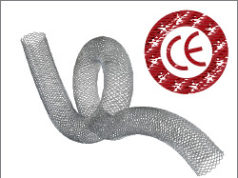
Micro Medical Solutions has received Investigational Device Exemption (IDE) approval from the US Food and Drug Administration (FDA). IDE approval allows the company to initiate a US pivotal clinical trial to evaluate MicroStent’s safety and efficacy. A press release reports that MicroStent is a vascular stent specifically designed to achieve and maintain vessel patency and improve blood flow in order to reduce below-the-knee amputations for patients with critical limb ischaemia resulting from peripheral arterial disease.
Last year, Micro Medical Solutions completed a three-centre, 15-patient feasibility study of MicroStent in which MicroStent met all primary endpoints for both safety and efficacy. The study demonstrated in the device-related per protocol population that 90.9% of patients had primary patency at six months’ post-index procedure, which is a composite of 90.9% of patients with freedom from occlusion, while 100% were free from a clinically driven target lesion revascularisation. The study also showed 100% of patients had freedom from the primary safety endpoint at six months’ post-index procedure, which is a composite of 100% of patients with freedom from death and 100% freedom from major adverse limb events in the same population.
The FDA has granted IDE status based on these outcomes. Micro Medical Solutions will immediately initiate the process to begin enrolment in the clinical trial, called the STAND study (A clinical evaluation of the MicroStent peripheral vascular stent in patients with arterial disease below the knee).
Robert E Beasley (Mount Sinai Medical Center, Miami Beach, USA), the lead investigator, comments: “Because critical limb ischaemia represents the most severe clinical manifestation of peripheral arterial disease, we are excited to have a device that offers physicians multiple access points, as well as a trial that allows for reintervention to effectively treat and lessen the impending limb and tissue loss.”
Jihad A Mustapha (Advanced Cardiac & Vascular Centers for Amputation Prevention in Grand Rapids, USA), states: “For patients with peripheral arterial disease, the risk of amputation is high, particularly if they have critical limb ischaemia. Amputees face decreased quality of life, as well as amputation-associated mortality. I look forward to the clinical trial for MicroStent because we need new solutions to help save critical limb ischaemia patients from amputation.”













